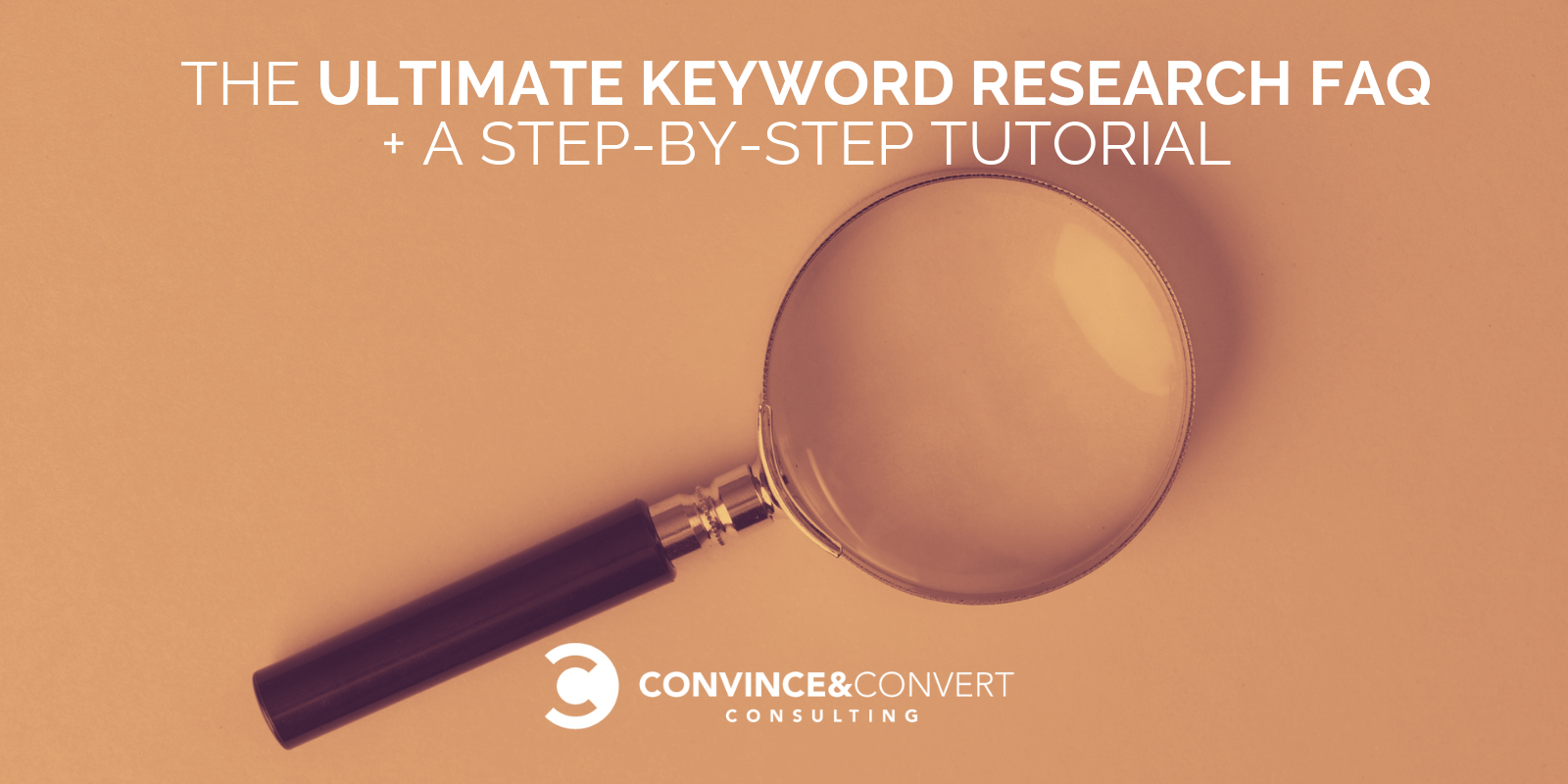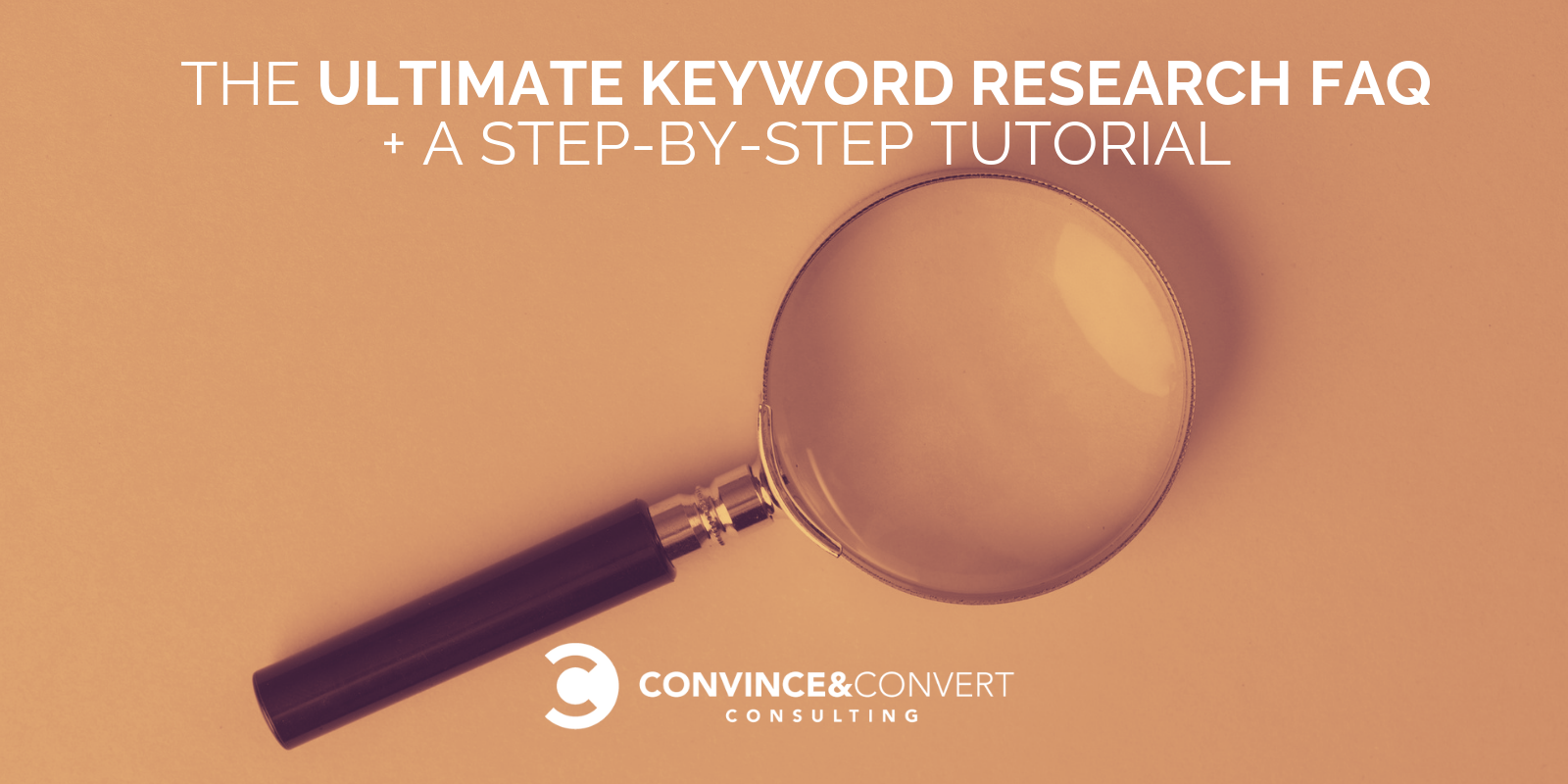In this article, I will walk you through the process of keyword research, from start to finish, offering tools, templates and tips on how to discover the best keywords, optimize your content and/or landing page, and get the most of organic search exposure: What Is Keyword Research? For more SEO basic concepts and terminology, read here. Keyword research is important for many reasons: Keyword research gives the marketer actionable data on how to build organic search visibility (i.e. increase the website rankings) and what topics to build content around. Now, take that word and run through a keyword research tool of your choice. How Should I Organize My Keyword Research? Serpstat uses a unique clustering algorithm identifying groups of keywords based on relevancy. Once you identify groups of your chosen (i.e. focus) keywords (most of those groups can be included in one piece of content), go ahead and use Excel or Google Spreadsheets to plan your content strategy. To create and optimize your content, use Text Optimizer. Text Optimizer will analyze Google SERPs and return: Terms you need to include in your future article — pick around 20 of those to include into your content Topic categories (those work great for better understanding and structuring your content as well as, in most cases, breaking your content into subsections using H2/H3 subheadings) Popular questions (those are great for building content around them). With that being said, keyword research can be free, but if you are working on content on a monthly basis, you do need at least those two tools.

Whether you are content marketing or conversion optimization expert, keyword research is a crucial task that you need to be doing on a regular basis.
In this article, I will walk you through the process of keyword research, from start to finish, offering tools, templates and tips on how to discover the best keywords, optimize your content and/or landing page, and get the most of organic search exposure:
What Is Keyword Research?
Keyword research is the the process of discovering a list of words and phrases your target audience uses when discussing or exploring an idea or a topic that is relevant to your business and/or your website.
Many marketers assume keyword research is just about Google and understanding which words your potential customers or leads type into the search box. But keyword research can also be based on social media behavior (understanding how people discuss your topic on social media)
For the sake of focus, this guide is based on search behavior because it provides us with the most structured and easy-to-use data. For more SEO basic concepts and terminology, read here.
Why Is Keyword Research Important?
Keyword research is important for many reasons:
- Keyword research gives the marketer actionable data on how to build organic search visibility (i.e. increase the website rankings) and what topics to build content around.
- Keyword research helps us analyze and understand our competitors (what they are focusing on, which tactics seem to work best for them and how we can do better)
- Keyword research helps us improve our offering (by understanding what our potential customers are struggling with, what they like/dislike and how to serve them better)
How Do I Get Started with Keyword Research?
Keyword research always starts with a core term that is the main topic of your business or website. You know it already.
Now, take that word and run through a keyword research tool of your choice. Here are a few options.
The best free keyword research tools:
- Google Search Console (this one is useful for those websites that are already ranking for some queries)
The best paid (freemium) keyword research tools:
- SEMrush ($99/m)
- Serpstat ($19/m)
- Ahrefs ($99/m)
- Spyfu ($39/m)
- Moz PRO ($99/m)
The noted price is for the lowest-tier product. Each of the above tools offers many packages based on your needs.
Most of the tools above will provide you with Google search volume number: The higher it is, the more people search for that word/phrase on a monthly basis.
The paid tools also offer some form of organic competition metric, i.e. keyword difficulty. Read more about keyword difficulty here.
Your goal is to find keywords with at least some search volume (no use optimizing for keywords no one searches for) and low/moderate competition.
How Should I Organize My Keyword Research?
Coming up with an effective keyword…

COMMENTS